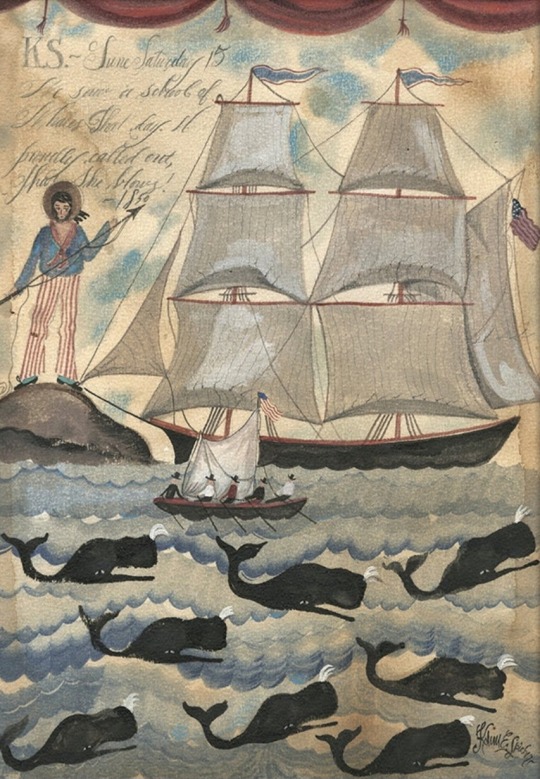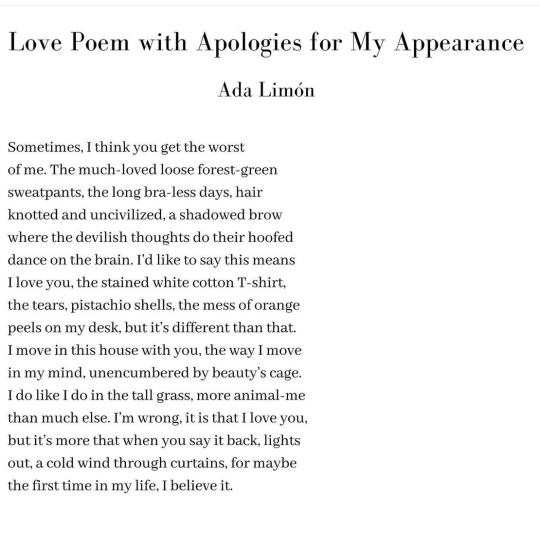Photo


David Dastmalchian photographed by Braden Moran
1K notes
·
View notes
Text

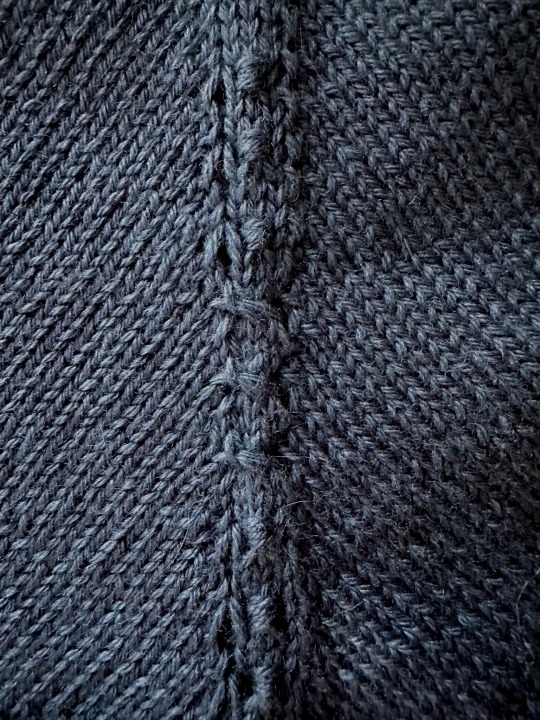

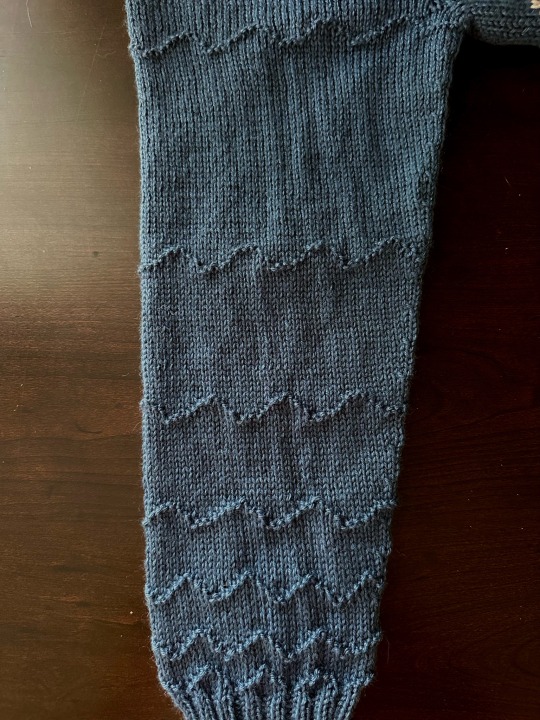
a whale of a good time🐋
29K notes
·
View notes
Text
Using tarot to read on magical events in your own practice: quick theory, new card meanings, and spread ideas
this post is OC based on my personal tarot practice; the examples given are hypothetical for the sake of this post.

Well-meaning guy: "If you think that event was a bad omen, why not read tarot to clarify?"
Person who learned tarot from popular online resources and introspection-focused art decks: "I drew the 6/Cups, so I guess my ward falling off the wall is about my inner child?"

Tarot meanings change and evolve over time. Historical meanings are often not the same, or even contrary to, modern meanings. (Consider, 6/Pentacles: the French present moment was misinterpreted to mean presents, gifts).
By acknowledging that many modern meanings available for tarot cards are modern interpretations for modern concerns, many of which have fuckall to do with witchcraft, we can also acknowledge that we can apply our own sets of meanings to tarot to achieve personal interpretations in pursuit of personal goals.
I call this concept symbol sets, and you can apply your own symbol sets to certain tarot readings in order to rapidly obtain information about magical events in your life.

Symbol sets can be swapped out for each reading. You can intend to operate on your "normal meanings" for a typical reading, and then intend to operate with "magical omen meanings" for another reading.
There are no such things as universal tarot card meanings; there are some traditional meanings, some historical meanings, and many modern meanings. Adjust what each card means to you to your heart's delight.
The more symbol sets I've developed and practiced with, the more versatile and accurate my tarot reading has become. Working with custom symbol sets might be the single biggest leap in my reading ability in 16 years of practice. At least, it feels that way!

Quick n' Dirty Symbol Set for Magical Omens, Appropriate for Everyday Use
1. Apply general portents to each suit which matches your magical practice.
Here is one set that could be suitable to troubleshooting potentially magic events:
Swords, or Air: Misfortune, betrayal, malefica, ill-intent, adversity, due to harmful (even if unintentional) spirit action, pointless or wasted effort. Sometimes, banishing, binding and hexes.
Wands, or Fire: A lot of power, excessive power, due to your own actions, uncontained energy, something you did was very much overdone. Sometimes, protection and empowerment.
Pentacles, or Earth: Mundane, physical and normal reasons, an everyday occurrence, mundane but natural growth and change. Sometimes, unlocking and unblocking.
Cups, or Water: Blessings, magic working as intended (even if unexpectedly), the normal course of magical events, magical growth and change. Sometimes, cleansing and purifying.
Major Arcana: Guiding spirits and gods; their behaviors, guidance, or messages.
A spirit worker might like to add an additional layer of complexity, which modifies the prior set:
Court Cards: The actions of another being, such as a practitioner, god, or spirit, whether they acted intentionally to bring about the event or not.
(Further breakdown, as an example: Swords courts are beings intentionally acting badly; Wands courts are the most important spirits of your path; Pentacles courts are mundane folk or spirits unrelated to your path; Water courts are other practitioners, or spirits related to your path without being in your "inner court.")
Interpret any card drawn within these principles. Here are a few random examples. Let's say, a money spell has failed to produce results, and we'd like to know why.
5/Cups [disappointment, failure]: This is the normal course of magical events; the spell wasn't cast well, and so nothing is happening.
9/Wands [determination, boundaries]: A lot of energy was raised, but incorrectly targeted or released; the energy is cooped up.
Judgment [judgment]: An important spirit in your path wants you to deal with what you have been avoiding, and will interfere with your magic until you face them.

Spread Ideas
"What's going on with that thing?" | 3 cards
Card 1: The source or cause
Card 2: The current state of affairs
Card 3: Suggested action
Example; the money jar doesn't work:
Card 1, King/Swords: The source of failure was the person in the discord server who promised to curse you for not feeling the same way about Destiel as they did.
Card 2, Page/Pentacles: The current state of affairs is that as a symptom of the curse, an unaware person or spirit is blocking the prosperity you seek.
Card 3, Queen/Cups: Ask a benevolent spirit or helpful practitioner friend to assist you in unblocking the situation.
Determining responsibility | 2 cards
Card 1: Why this thing happened
Card 2: Why it didn't happen; one thing that wasn't the cause at all
Example; the ward fell off the wall:
Card 1, 10/Pentacles: This happened because of random happenstance in the home; it was not a magical event.
Card 2, Ace/Swords: This action was unrelated to malefica or bad spirits or things like that.
Foresight Before Acting | 4 cards
Card 1: The current state of affairs
Card 2: The outcome of your intended plan of action
Card 3: Recommended plan of action
Card 4: The outcome of the recommended plan
Example; the spirits did not seem to appear during a spirit petition spell:
Card 1, 3/Wands: Sufficient energy was raised to attract the attention of spirits, but they may not have been properly called to action.
Card 2, 6/Swords: Your plan to call the spirits back and re-cast the spell is a fruitless attempt at a transition into a new plan.
Card 3, Empress: Communicate with your primary goddess or powerful spirit of the earth and obtain input and guidance.
Card 4, Magician: This plan will result in obtaining important magical information about this type of summoning spell you are trying to achieve.
214 notes
·
View notes
Photo
Huge mood, ladies what we doing for the big one

Margaret. The Walpurgis Night || Alexandra Nedzvetskaya
625 notes
·
View notes
Photo
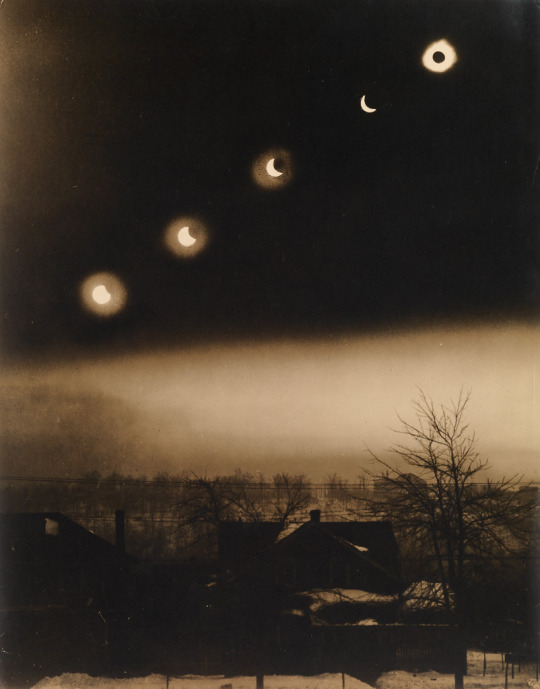
© Conningham & O’Brien, Jan. 25, 1925, Total eclipse of the sun
On a cold snowy January day, the moon’s shadow crossed the surface of the sun over a period of less than a minute. In this pictorial photograph, which was created by making multiple exposures on the same negative, we see the trajectory of this celestial event. In the final image, the black ball of the moon’s shadow, centered in the fiery sphere, the sun’s brilliant corona is captured. (+)
5K notes
·
View notes
Text
windvexer's spellcrafting and spellcasting checklist
These are the sorts of things I think about when I work the style of magic that I work. This stuff is based off of my beliefs which might include UPG and is therefore definitely not applicable to everyone. Take what you want and discard the rest.
I do not rigidly follow this checklist. These are just the kinds of things I think about and consider when planning and executing spells. For small, simple spells, I ignore almost all of these factors. For serious and large spells I may consider many more of them.
Spellcrafting
Intent
Do I know exactly what I want to occur?
Have I thought through a few obvious logical consequences of my intended goal?
Have I performed divination on the outcome of this intent?
Am I sure that what I'm asking for is the same thing as what I want? (e.g. do I really want more people talk to me or is my true desire make more friends?)
Do I need to crystalize my intent into one specific phrase, or is it okay for me to leave it casual or even improvise?
Expectations
How soon is it rationally possible for my spell to manifest?
Do I expect the spell to manifest very rapidly? If so, what components or spellcasting style am I going to use to encourage rapid manifestation?
Do I expect the spell to work "just okay," or to be very powerful? If I want it to be very powerful, what extra steps am I going to take to fill the spell with power?
If the spell does exactly as my intent dictates, what is the most likely outcome?
Responsibilities
Am I bound to any gods or spirits that would frown upon what I want to undertake with this spell?
Have I taken any vows or oaths that would conflict with my goals?
Does casting this spell intent conflict with personal goals I've set for myself?
If casting for others, is this truly a situation I want to involve myself in?
If casting for myself, is this spell in my own best interest?
Is there any chance I am casting this spell to side-step self care, responsibilities, or personal healing? (I don't mean don't cast a self-love spell if you actually need therapy! Cast that spell every gosh darn day if you please. I literally mean, are you using magic as an avoidance tactic, when the reality is you really really just need to eat a sandwich and do your homework?)
Design
Have I chosen a style of spellcasting which matches my intent? (e.g., if I want to banish, have I chosen a spellcasting style that includes sending away actions such as burning a paper or throwing away a rock?)
Can I be creative with what I have to avoid delaying this spell? (e.g. I usually use candles as a beacon to draw things in, but when I think about it, a candle burning down would also be a good sending away action for a banishment).
If I have already heavily cast in the past, do I have any ongoing spells (such as wards) which would interfere with the work I want to do now?
Do I want to include a physical indicator that the spell manifested or stopped working? (Such as tying a thread around your wrist that breaks when the spell stops working)
Physical Components
What physical object will be used to anchor this spell? I believe that manifesting in physical reality is much easier if you tie magic to a physical object.
Do I know how the physical objects I'm using are linked to the design of the spell? (e.g., I want to banish, so I choose to use a candle for a dwindling away effect.)
Do I have a safe and practical plan for storing or disposing leftover physical objects from the spellcasting?
How can I make storage or disposal of leftover objects a part of the spell? (e.g. I take the leftover melted wax from the banishment candle and walk to the dumpster down the street, completing the spell as I throw away the last bits of their presence in my life in the garbage).
Am I intending to invoke gods, spirits, or entities in this spell? If so, do I need physical components to represent them within the casting space, or within the spell itself?
If I am intending to invoke gods, spirits, or entities in this spell, and I need physical components to represent them, is it a good idea to save and re-use these components? Do I need to make disposable representations, or can I use permanent devotional objects?
What physical components have I gathered which are unnecessary?
Does each component that I've chosen have a specific job in this spell?
Does each component and their jobs fully align with my chosen intent and spell style?
If not every component and their jobs align with my intent or method of casting, do I need to re-examine my intent and rework the foundations of this spell?
Do I need to modify or prepare any physical components? If so, do I need to do any of this ahead of time?
Energy and Power
How much power do I believe it will take to successfully perform this spell? If the energy requirement is large, do I need to break this operation up into smaller parts and cast multiple small spells?
Will it be necessary for me to craft a physical spell vessel ahead of time so I can slowly charge it until it has enough power?
How do I intend to power this spell? (for me, I power it with my own energy, or call on external forces)
If I will use my own energy, do I have enough personal power reserves to successfully cast this spell? Or, will it burn me out, even on a day when I'm well-rested?
If I will use an external energy, how do I plan to raise or call this energy into my casting space?
How do I plan to combine power with my spell components? (sometimes this is inherent in spell style; if doing knot magic, the power is held within the knots. At other times, it must be thought through - if I draw a symbol on a rock, maybe my power will be consumed by the spell at the singular point where I draw the symbol on the rock. Or, maybe I'd like to charge the symbol ahead of time.)
If I'm using many physical components, do I need to individually charge each one?
Do my chosen energy sources align with my spell needs? (e.g. if I require very rapid manifestation, have I ensured that I am using airy, fiery, mercurial, swift, or rapid energies? Or, have I accidentally used lots of heavy, slow, earthen, saturnine, creeping energies?)
Spirits, Gods, and Entities
If asking spirits, gods, or entities for help, how is my relationship with that power? Do I need to visit them ahead of time and make sure we're on good terms before I call on them?
If asking spirits, gods, or entities for help, do I need to plan a formal invitation or petition?
If asking spirits, gods, or entities for help, do I need to repay them? If so, what do I need to collect or prepare for this purpose?
Aftermath and Upkeep
Is this a one-shot or continuous spell? Will I be maintaining and watching over the spell after it is cast, or will I let it go do its thing?
If it's an ongoing spell that will require upkeep, have I chosen a physical vessel that's practical to be worked with over a long period of time?
Will I need to make notes about this spell so I can remember what the vessel is in a few weeks or months?
How often will I need to recharge or maintain this spell?
If something went wrong, how would I undo this spell?
Spellcasting
Preparation
Have I gathered everything I need into one place?
If I forget something, is it okay for me to walk away from the spell to go get it, or is it really important I don't leave casting space until the spell is complete?
Is there anything special I need to do to prepare my casting space?
Do I need to take notes or write anything down so I don't forget it once the spell starts?
If I'm going to do a fancy ritual, do I need to write or print the ritual steps ahead of time?
If I've chosen to perform my spell at a special time, how much earlier do I need to prepare my casting space so that I can begin working within the correct time?
Pre-Casting Self Check
Do I feel safe and comfortable casting this spell?
Do I have enough personal energy to cast a spell right now? (even when conjuring external energies, you always use some of your own energy to cast spells)
If there is a risk that I will be drained, do I have anything important to do today or tomorrow that would be bad to miss or under-perform on?
Do I have enough free time today to have extra rest after spellcasting?
Do I have enough extra food to help restore me after spellcasting? (especially carbs, by the way)
Are there any tasks or activities I should do before I cast this spell, in case it is more draining than I expected?
Will I have enough energy to clean up my spellcasting space once I'm done? This includes properly disposing of or storing any spellcasting remnants or vessels.
Do I want to pray and ask for aid before I begin the spellcasting process?
Do I have any last-minute gut feelings about casting this spell? Is there a negative or worrying emotion that has been with me through this entire process that I've tried to ignore?
Do I want to exert my will upon the world?
After Care
How do I feel? (Including the physical, emotional, and mental)
Did I properly pay any spirits, gods, or entities involved in my spellwork?
Did I properly close down the spellcasting space (if applicable)?
If the working took place in my resting area, does my resting area feel comfortable? Is there anything I need to do, such as opening the window or playing music, to help my space return to normal?
Do I need a snack?
Do I need to perform a restful, low-energy activity for a little while?
Would it feel nice if I went and talked to people, or would I prefer to be alone?
Did I have any special insights during spellcasting that I want to write down before I forget?
Reflection
Did the spell go how I imagined it would?
Was I able to feel power being raised?
Did I end up feeling drained or buzzed after spellcasting? (note that you're not always bound to feel either, but it's worth noting as they're decent indicators that "something happened")
Did I ever feel a moment where I was still working over my physical components, but realized that they felt complete and the magic was ready?
If I called on spirits, gods, or entities, did I feel their presence? Did it seem like they had thoughts or feelings about the spell?
If I cast a spell like this again, what would I change? What would I keep the same?
Did I feel good about my disposal or storage methods for physical components?
Do I want to perform divination on how the spellcasting went?
Did I over or under-estimate how much energy the spell would require?
Did I like the style of spellcasting? Do I want to explore more spells of this style, or try a different type?
2K notes
·
View notes
Photo

“I’m becoming who I am and it’s the scariest thing I’ve ever done.”
Posted from the PostSecret website.
65K notes
·
View notes
Text
“For the Minoan (3000-1100 BC) and Mycenaean (1500-1100 BC), “daimons” were seen as attendants or servants to the deities, possessing spiritual power. Later, the term “daimon” was used by writers such as Homer (8th century BC), Hesiod, and Plato as a synonym for theos, or god. Some scholars, like van der Leeuw, suggest a distinction between the terms: whereas theos was the personification of a god (e.g. Zeus), daimon referred to something indeterminate, invisible, incorporeal, and unknown.”
— [x]
17 notes
·
View notes
Text
We are confronted with several questions when considering the relation between blood, body and power and its perception in the early modern world. Did blood retain its own magical potency? Or was it just the channel for supernatural forces? ... [W]ere there certain individuals who through their bodies could magically affect others? And, more important, who did early modern people fear most, the witch or the Devil?
Francesca Matteoni, Blood Beliefs In Early Modern Europe
31 notes
·
View notes
Text



“The Sun, Strength & Sight, Light; these are for the servants of the Star & the Snake.”
El Mago
Star & Snake
2K notes
·
View notes
Photo

thinking about this picture from 1975 taken in san fran on this day period
47K notes
·
View notes
Text
“You look at trees and called them ‘trees,’ and probably you do not think twice about the word. You call a star a ‘star,’ and think nothing more of it. But you must remember that these words, ‘tree,’ ‘star,’ were (in their original forms) names given to these objects by people with very different views from yours. To you, a tree is simply a vegetable organism, and a star simply a ball of inanimate matter moving along a mathematical course. But the first men to talk of ‘trees’ and ‘stars’ saw things very differently. To them, the world was alive with mythological beings. They saw the stars as living silver, bursting into flame in answer to the eternal music. They saw the sky as a jeweled tent, and the earth as the womb whence all living things have come. To them, the whole of creation was ‘myth-woven and elf patterned’.”
— J.R.R. Tolkien, from ‘Mythopoeia’ (via sempiternele)
28K notes
·
View notes
Text
“But why are trees such social beings? Why do they share food with their own species and sometimes even go so far as to nourish their competitors? The reasons are the same as for human communities: there are advantages to working together. A tree is not a forest. On its own, a tree cannot establish a consistent local climate. It is at the mercy of wind and weather. But together, many trees create an ecosystem that moderates extremes of heat and cold, stores a great deal of water, and generates a great deal of humidity. And in this protected environment, trees can live to be very old. To get to this point, the community must remain intact no matter what. If every tree were looking out only for itself, then quite a few of them would never reach old age. Regular fatalities would result in many large gaps in the tree canopy, which would make it easier for storms to get inside the forest and uproot more trees. The heat of summer would reach the forest floor and dry it out. Every tree would suffer. Every tree, therefore, is valuable to the community and worth keeping around for as long as possible. And that is why even sick individuals are supported and nourished until they recover. Next time, perhaps it will be the other way round, and the supporting tree might be the one in need of assistance. When thick silver-gray beeches behave like this, they remind me of a herd of elephants. Like the herd, they, too, look after their own, and they help their sick and weak back up onto their feet. They are even reluctant to abandon their dead.”
— The Hidden Life of Trees: What They Feel, How They Communicate—Discoveries from a Secret World
Peter Wohlleben,
21K notes
·
View notes
